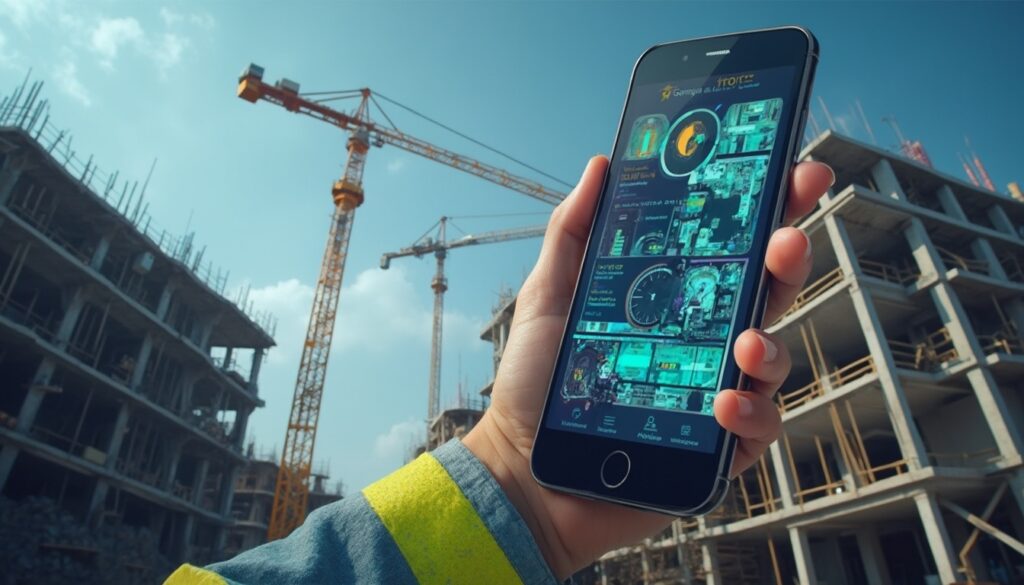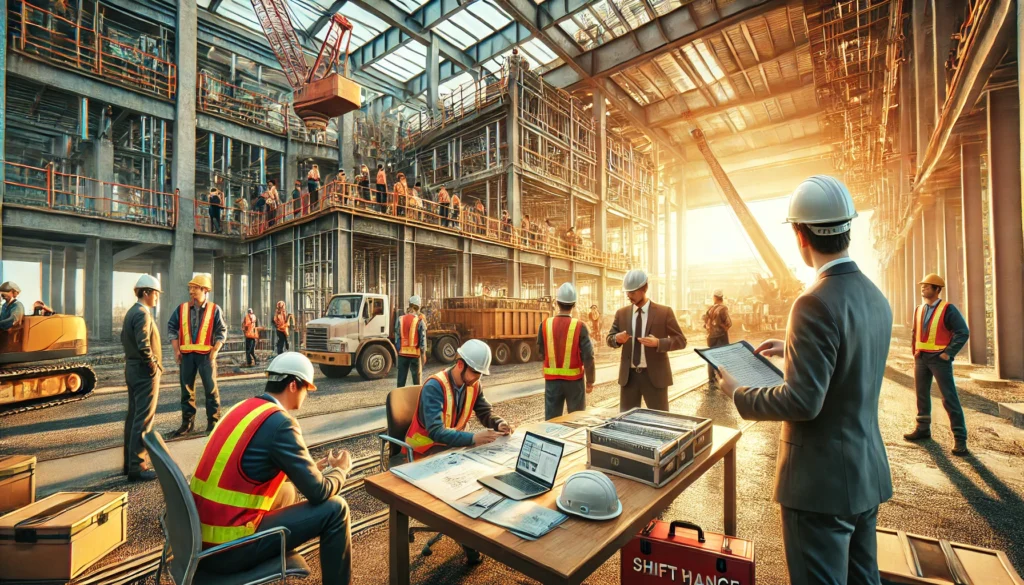Digitalization has brought about profound changes in numerous industries, and the construction sector is no exception. The integration of technology into everyday construction work, increasingly known as Construction Digital, is revolutionizing not only how projects are planned, designed, and executed but also promoting an efficiency and precision previously unattainable. Innovative digital tools and methods throughout the entire value chain of construction, from planning to execution and maintenance, enable projects to be realized faster, more cost-effectively, and more sustainably. This transformation presents significant opportunities for all stakeholders in the construction industry who are willing to question traditional processes and embrace the digital transformation of construction.
This article focuses on key technologies such as BIM (Building Information Modeling), automation, and robotics, as well as the application of Artificial Intelligence in construction, which together form the foundation of Construction Digital. Through the networking of information and professionals via digital platforms, BIM enables optimized planning and execution of construction projects. Automation and robotics provide solutions for the smooth implementation of complex construction tasks, while Artificial Intelligence (AI) pioneers in the areas of planning, construction monitoring, and maintenance. Case studies illustrate how these technologies are concretely applied and the added value they bring to the construction industry. The digital transformation in construction is not just a matter of technology but also of strategy, culture, and leadership in the context of Construction Digital.
BIM (Building Information Modeling)
Building Information Modeling (BIM) is revolutionizing the construction industry by enabling a comprehensive digital representation of construction projects. This technology not only supports the visualization of the entire construction process but also optimizes the planning, execution, and maintenance of projects in line with Construction Digital.
Definition and Benefits
BIM is more than just a software solution; it is a process that allows for the digital planning, construction, and operation of buildings. By utilizing BIM within Construction Digital, construction teams can access a consistent, collaborative, and computer-based model that encompasses all physical and functional aspects of a project. This leads to improved coordination, a reduction in errors and delays, and more efficient communication among all stakeholders. A key advantage of BIM in the context of Construction Digital is the ability to integrate and manage interdisciplinary information in real-time.
Examples and Applications
The application areas of BIM are diverse, ranging from preliminary planning to detailed design, from infrastructure construction to building construction. One example of the practical application of BIM in Construction Digital is the planning and realization of complex construction projects such as skyscrapers or bridges, where various trades need to be efficiently coordinated.
Automation and Robotics
In the field of automation and robotics, the construction industry is experiencing significant advancements that enhance both efficiency and safety on construction sites. These technologies within the context of Construction Digital allow for more precise and faster execution of construction tasks, which traditionally require much time and often involve high risks.
Robotics on Construction Sites
Robotic technologies are increasingly being used on construction sites to automate heavy or repetitive tasks. This includes everything from material handling to the precise execution of construction work within the framework of Construction Digital, which previously required extensive manual labor. The integration of robots helps to reduce the workload of construction workers while increasing accuracy in critical tasks.
Automated Manufacturing
Automated manufacturing in construction refers to the use of advanced machines and robotics to produce components. This technology, which is a key element of Construction Digital, allows for the rapid and precise production of elements that can then be directly assembled on-site.
Artificial Intelligence in Construction
The integration of Artificial Intelligence (AI) in construction is transforming traditional practices through advanced technologies like predictive analytics and machine learning within the context of Construction Digital. These technologies enable more accurate forecasting and more efficient execution of construction projects.
Predictive Analytics
Predictive analytics uses data and algorithms to forecast future events or outcomes. In construction, this technology allows for the prediction of potential issues and delays in the context of Construction Digital before they occur.
Machine Learning
Machine learning, a core area of artificial intelligence, is used in construction to identify patterns and relationships in large data sets that would otherwise be too complex for human analysts. This technology not only improves decision-making throughout the construction process but also optimizes resource allocation and workflows.
Case Studies
Successful Digitalization Projects
An outstanding example of the successful application of digital technologies in the construction industry is the tool Valoon. Valoon significantly facilitates the automation of construction reports, delay notifications, and other important documents. The platform ensures that all project participants are always up-to-date with documents and plans, greatly improving communication and information flow. Notably, Valoon adheres to strict data protection policies, ensuring GDPR-compliant communication.
Best Practices
Valoon stands out for its particularly user-friendly interface, which requires no extensive training. Project registration can easily be completed via a QR code or a link, significantly shortening implementation time in the context of Construction Digital.
Conclusion
The digital revolution in construction, illustrated by advanced technologies like BIM, automation, robotics, and artificial intelligence, marks a turning point in how construction projects are planned, executed, and managed. These technologies not only offer the opportunity to optimize construction processes and increase efficiency but also contribute to enhanced safety and reduced environmental impact. The case studies and application examples discussed in this article underscore the added value of digital solutions in construction and demonstrate the transformative power of Construction Digital for the industry.
This shift towards digital technologies requires a change in mindset and working methods within the construction industry. It is a call to all players in the construction sector to confront the new challenges and seize the opportunities presented by digital transformations. For companies ready to take this step and digitize their processes, Valoon offers an intuitive platform designed to facilitate the transition. Contact Valoon now and book a demo. The digital transformation in construction is not only unstoppable but, as demonstrated, a crucial step towards a more sustainable, efficient, and future-ready construction industry.








